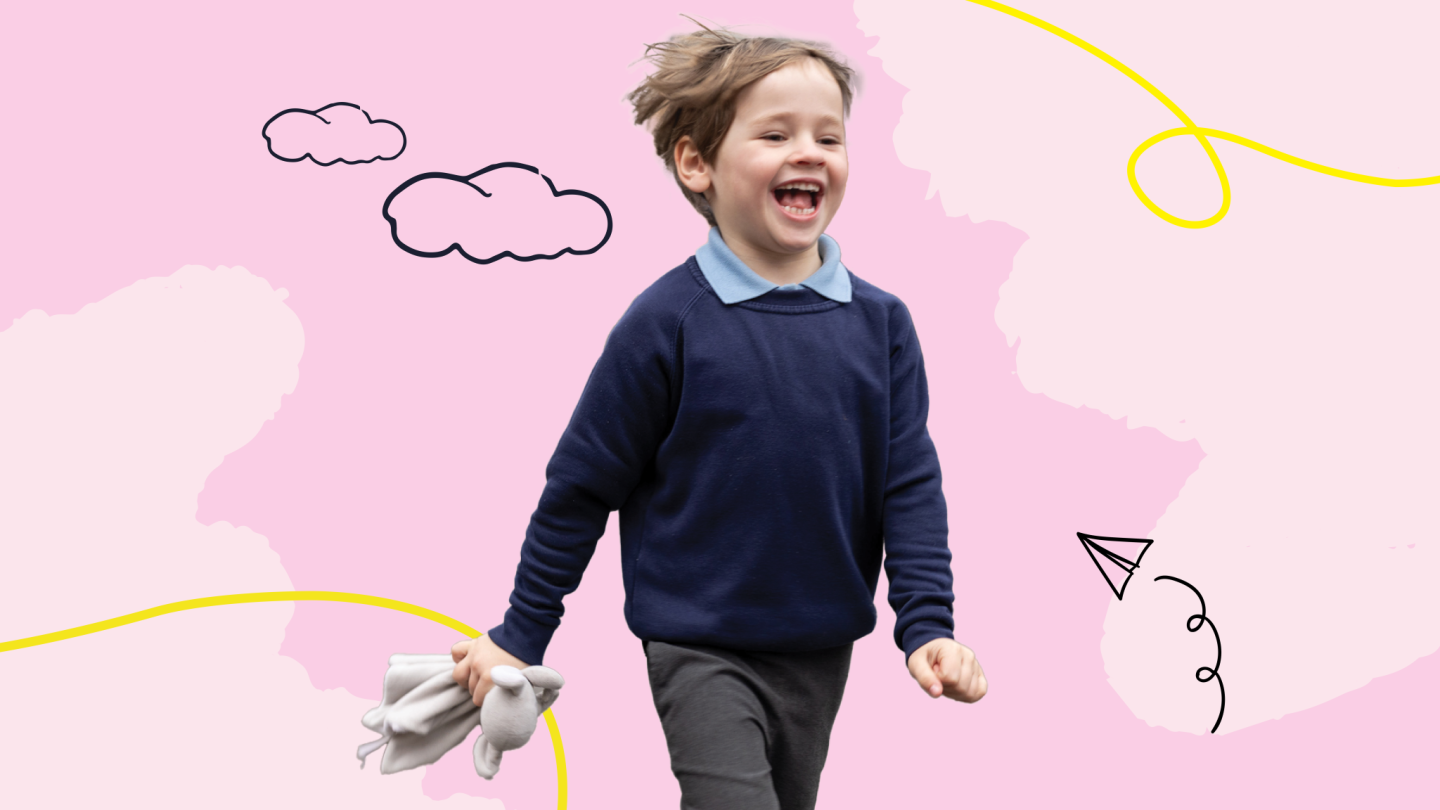Socialising in reception
 Image: A primary school age boy running and smiling, holding a soft toy.
Image: A primary school age boy running and smiling, holding a soft toy.
Starting primary school is a huge step for both children and parents alike and while it is just the beginning of an exciting adventure, at times it may feel quite daunting.
At the top of the list are worries about how easy it will be for your child to find their feet and settle into an unfamiliar setting, deal with a whole range of new people, emotions and situations, and most importantly make some friends. But help is at hand and our expert webinar facilitator, Lisa McLeod, has outlined some of her top tips to make this all important first year run as smoothly as possible.


